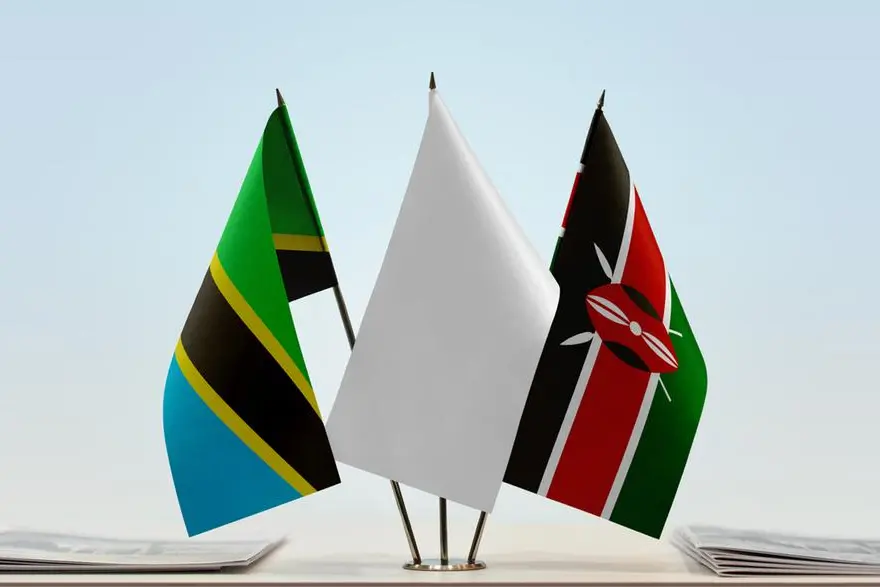PHOTO
Kenya and Tanzania resolved 23 restrictive regulations that had impeded trade between the two countries, following President Samia Suluhu Hassan’s Nairobi visit in May 2021, a government paper shows.
A new government paper shows that Kenya had initially targeted to resolve about seven non-tariff barriers (NTBs) — restrictive regulations which licences, quotas, embargoes, foreign exchange restrictions, and import deposits — in the financial year 2021/22 but this jumped to 31, reflecting a warm relationship between the two countries.
The drop in the number of these trade barriers, which pushed the cumulative NTBs resolved and eliminated to 256 by end of June last year, came moments after the visit to Kenya by President Suluhu who had just replaced the late John Pombe Magufuli.
Dr Magufuli’s protectionist policies had occasionally flared up in a diplomatic spat between Nairobi and Dar es Salaam.“The over achievement was as a result of collaborations between Kenya and the United Republic of Tanzania to resolve NTBs to create market access,” reads part of the Report for General Economic and Commercial Affairs Sector, a sector working group for the budget preparation, which also includes the Treasury.
About 13 of these NTBs were resolved at East African Community’s Regional Monitoring Committee meetings, helping push Kenya’s export into the region in the financial year 2021/22 to Sh192.4 billion in the review period.
A year after the visit by Ms Suluhu, trade between Kenya and Tanzania crossed the Sh100 billion mark for the first time, signalling improved ties between the two states.
The thawing of trade ties between the two countries following the death of Magufuli also saw Tanzania’s exports to Kenya race past imports for the first time in the six months to June 2021.
Read: Kenya's economy booms as Tanzania softens bordersIn the third quarter of 2022, the value of imports to Tanzania declined slightly to Sh16.6 billion compared to Sh19.1 billion in the period between July and September 2021, but it is a significant jump from Sh8.8 billion in the same period in 2020.
The value of goods ordered from Tanzania — including cereals, wood, and edible vegetables — hit a high of Sh18.29 billion in the review period, according to the Kenya Revenue Authority data published by the CBK.
The 70.06 percent surge in goods bought from Tanzania outpaced that of exports, which grew at a five-year high, resulting in a rare trade deficit of Sh1.02 billion.
Kenya’s trade spat with Tanzania reached a crescendo in November 2017 when Dar es Salaam burnt 6,400 live chicks from Kenya on grounds that they were smuggled into the country.
Later, Kenya would also ban maize imported from Uganda and Tanzania, arguing that the imported crop had been infected with cancer-causing aflatoxin.
Lately, as Kenya ran short of maize, a staple food crop, and retail prices of maize flour soared, the country turned to Tanzania to plug the deficit.
However, Kenyan grain traders seeking to import maize from Tanzania were required to register their firms in Dar es Salaam as the country imposed stricter rules to protect its commodities and jobs from shifting abroad.
Read: Tanzania, Kenya face off over maize amid shortage, soaring pricesIn June 2021, a month after the State visit by Suluhu to Kenya, the Joint Trade Committee, a bilateral organ comprising officials from the two countries created to resolve issues affecting areas of cooperation, identified 60 tariff and non-tariff barriers between the two countries.
Among the NTBs that were to be resolved included customs clearance of soft drinks made in their territories, removal of inspection fees on processed products with a standardisation mark including wheat flour, and elimination of roaming calling fees following Tanzania’s entry into the Common Network Area.
Business Daily © Copyright 2022 Nation Media Group. All Rights Reserved. Provided by SyndiGate Media Inc. (Syndigate.info).




















